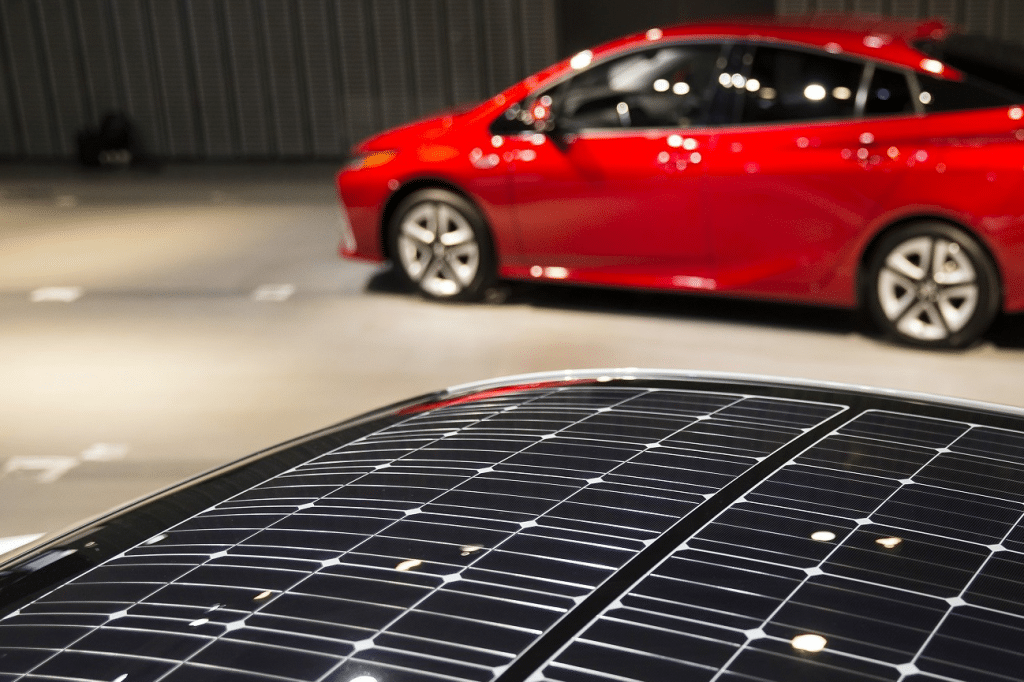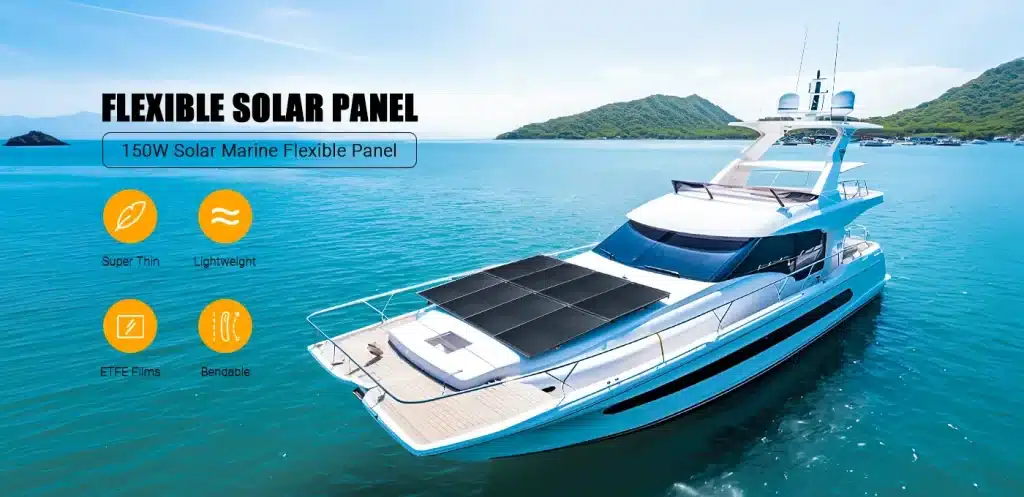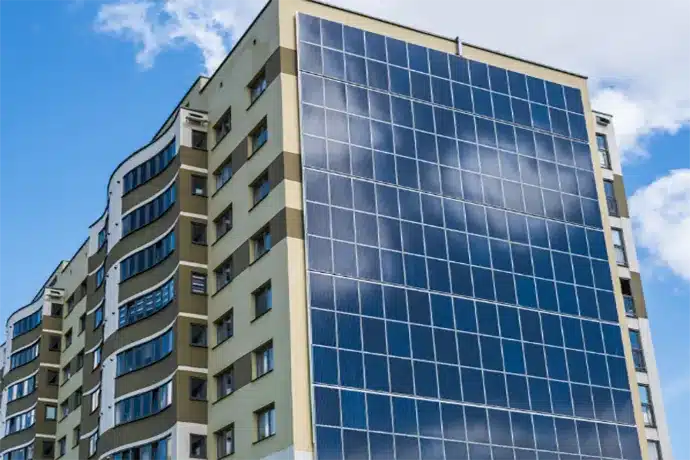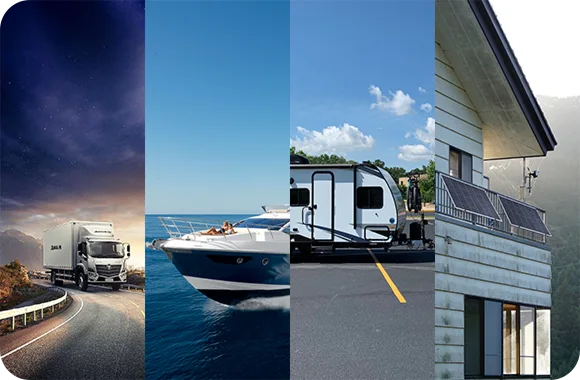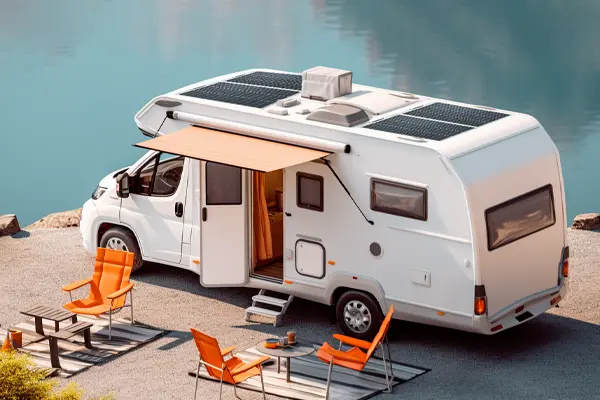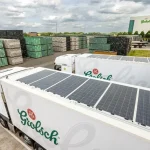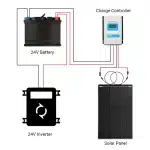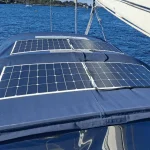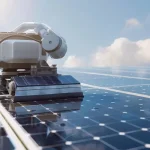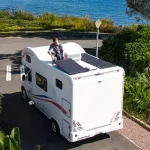What are flexible solar panels and how do they work?
As the world shifts towards renewable energy sources, flexible solar panels have emerged as a revolutionary advancement in solar technology.
In this comprehensive guide, we will delve into what flexible solar panels are, how they function, their advantages, and disadvantages, and their diverse applications across various industries.
Flexible solar panels, also known as thin-film solar panels, are lightweight, portable solar panels designed to be bendable and adaptable to different surfaces. Unlike traditional rigid solar panels, flexible solar panels are made using thin layers of photovoltaic materials such as amorphous silicon, cadmium telluride, or copper indium gallium selenide (CIGS). These materials can generate electricity when exposed to sunlight through the photovoltaic effect.
The functioning of flexible solar panels involves the absorption of sunlight by the photovoltaic materials, which then convert the solar energy into direct current (DC) electricity. This electricity is then passed through an inverter to convert it into alternating current (AC) electricity, which can be used to power various electronic devices or fed back into the grid.
What are the benefits of flexible solar panels?
The advent of portable solar panels has given those who enjoy camping outdoors a more diverse range of options, so let’s take a deeper look at the benefits and features that make flexible solar panels a compelling choice.
- They’re flexible: Flexible solar panels are made of thin solar cells on flexible materials such as plastic and fabric (for ultra-thin solar panels). Therefore, they’re highly bendable and hence perfect for many unique applications. For example, if your roof is curved or you want to install solar on uneven surfaces, these panels are your best option since they can take on different shapes.
- They’re lightweight: Flexible solar panels are highly portable. You can install them on weak surfaces like a cabin’s metal roof or the top of an RV since they don’t need heavy-duty mounting systems.
- Flexible panels are easy to install: Unlike the standard solar panels, flexible panels have minimal labor costs since they’re easier to handle and install. They don’t need mounting systems, and you can do a DIY installation. But, you’ll still need permits and documentation for DIY solar installations. Flexible solar panels are lightweight and bendable.
- They’re durable: Unlike traditional glass-based solar panels, flexible solar panels are more resistant to impact and can withstand harsh environmental conditions.
- Aesthetic Appeal: The sleek and low-profile design of flexible solar panels makes them visually appealing and suitable for applications where aesthetics are important.
What are the downsides of flexible solar panels?
Of course, there are still some shortcomings in the current flexible solar panels, so let’s see what can be improved!
- Lower Efficiency: In general, flexible solar panels have lower efficiency rates compared to rigid solar panels, which can impact the overall energy generation.
- Limited Lifespan: The materials used in flexible solar panels may degrade over time, leading to a shorter lifespan compared to traditional solar panels.
- Higher Cost: The manufacturing process of flexible solar panels can be more complex and costly, resulting in a higher price point for these innovative solar solutions.
- They require a large installation space: Due to their low power output, flexible panels take up a lot of space since you’ll need more panels to generate the same amount of energy as silicon panels.
Application Scenarios for Flexible Solar Panels
Building-Integrated Photovoltaic(BIPV)
These solar panels can be seamlessly integrated into building facades, roofs, or windows to generate clean energy while enhancing the architectural design. This innovative approach not only generates clean energy but also enhances the architectural design of buildings, creating a sustainable and visually appealing environment.
Recreational Vehicles (RVs)
Flexible solar panels are a popular choice for RV owners looking to harness solar energy for power while on the road. They can be easily affixed to the curved surfaces of RV roofs and are lightweight, making them suitable for mobile applications.
Boats and Marine Applications
Boaters can benefit from flexible solar panels to charge batteries and power onboard appliances. These panels are especially valuable for sailboats and yachts, where weight and space are critical considerations.
Uneven Surfaces
Flexible solar panels are designed to conform to irregular or curved surfaces, making them ideal for installation on uneven terrain, curved roofs, or structures with non-standard shapes. They can adapt to the contours of the surface, maximizing energy capture.
Backpacking and Camping
Portable and lightweight, flexible solar panels are a valuable source of renewable power for outdoor enthusiasts. They can be attached to backpacks, tents, or unfolded on the ground to charge devices and provide lighting.
Off-Grid Lighting
Flexible solar panels can power outdoor lighting fixtures in gardens, pathways, and parks without the need for electrical wiring or batteries.
Off-Grid Solutions
In remote locations or off-grid setups, flexible solar panels offer a reliable source of renewable energy for lighting, communication systems, and water pumping.


